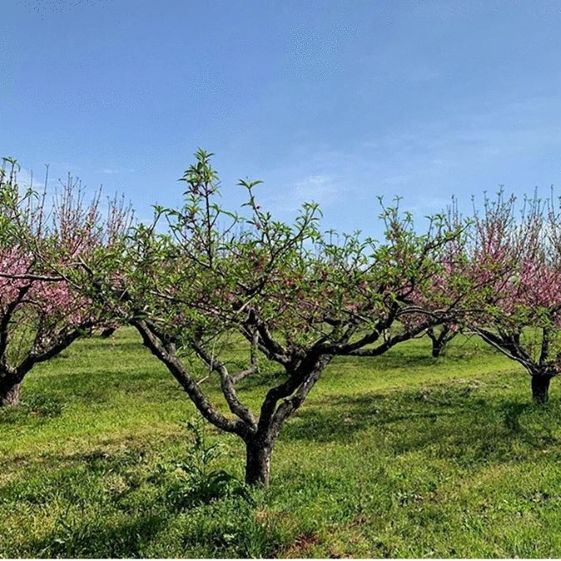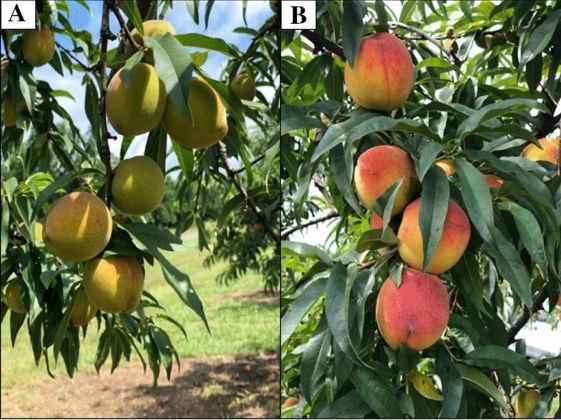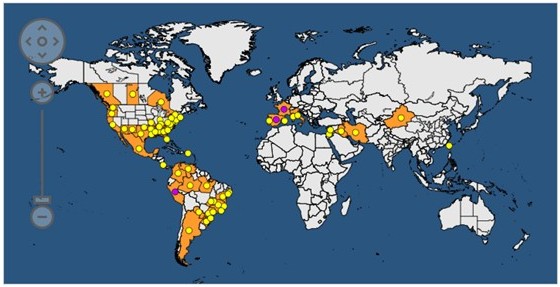Xylella fastidiosa has many names
This bacterium can infect many host plants and the disease can have different names depending on the host. A common name for this disease in summerfruit is phony peach disease.
Summerfruit includes stone fruit like peach, apricot, nectarines, plums, and cherries.
How it harms plants
Xylella fastidiosa multiplies in the water transport system in plants, blocking and damaging it. This impairs water movement within the plant, causing leaf scorching and wilting.
Symptoms can vary between hosts and in some cases, plants may have no symptoms (asymptomatic). It is important to keep in mind that symptoms can be confused with water stress, nutrient deficiencies, frost, and herbicide damage.
Signs to look for in summerfruit
- Stunting of shoots that can be greener and denser than normal.
- Lateral branches grow horizontally or drop, producing compact-looking trees.
- Leaves and flowers appear early in the season and leaves remain on the tree longer than on healthy trees.
- Affected trees produce lower quality and yields with fruit drastically smaller than average.
- The tree will usually stop producing fruit after 3 years.











